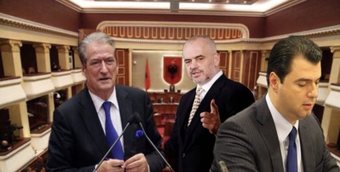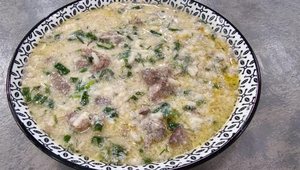
Of course, Albania does not become electoral heroes!


There is something that makes our era profoundly more dangerous than any regime of the past: it does not ban hope, but produces it itself as an imitation.
At a time when people no longer believe in politics, ideals, or themselves, power offers them a substitute: packaged, designed, industrially pumped hope.
Thus the electoral hero is born.
He does not emerge from the collision with darkness, but from the lights of the television studio. He does
not know the loneliness of battle, but only knows the endless mailing lists and invitations to all the studios of all the media.
He does not walk through the mud to reach the people, but flies above them, equipped with graphics, slogans, curated profiles, and emotional videos.
And yet, to the people tired of 35 years of devastation, he seems like an angel descended from heaven.
In this country of ours, we have reached this stage when a man who opens a new party, holds rallies and appears through a few jokes or fragments posted on social networks, immediately ascends to the altar as a “savior”, “voice of the forgotten”, “last hope”, “legend”, etc., etc.
But is this some miracle that is really likely to happen like this by itself and so suddenly just 1 or 2 years before the next elections?
No.
It is a refined industrial product, a marketing strategy that includes:
• heavy financial investment by oligarchs connected to power;
• narrative strategies built by local and international image experts;
• algorithms purchased to dominate the stream of digital consciousness;
• commissioned surveys that suggest a popular support that does not exist, but that “creates a gang effect”, because people follow those who are told that they follow everyone.
This is an illusion structured as reality. Jean Baudrillard, in “Simulacra and Simulation”, describes this: “When simulation takes the place of reality, we are no longer dealing with a lie, but with a new order of truth.”
Today in Albania, this new order of truth is called: “electoral hero”.
The logic of the absurd that builds the false myth.
If we were to stop and seriously ask:
• What has this man done for society or for the nation?
• What is his sublime act? What is his sacrifice?
• What is his decision that changed something real?
The answer would be an absurd silence.
Because nothing exists.
The only thing that exists is the appearance.
These “new heroes” have nothing to do with the traditional concept of the hero that we find in Homer, where the hero was the one who faced the gods and the inevitable course of fate to save his own.
Nor with Hannah Arendt's concept, where heroism lies in responsible action in public space, at personal cost.
They have nothing to do with Solzhenitsyn, who became a hero because he stood by the truth even when it threw him into a Gulag concentration camp.
Nor with Mandela who sacrificed a life to accept a peace that did not require revenge.
Our new "heroes" have done nothing.
But they are everywhere.
In television studios, in every media, in polls, in surveys. In "live".
In stories. In reels, and on Tik Tok.
In squares and halls with drones and phones and epic instrumental background sound.
This is the tyranny of form over content.
And if we do not become aware, we will suffer as a nation, we will believe in mirrors that do not reflect our face, but what the government has designed for us to love.
Declaring heroes those who did not fight is a crime against history itself.
Let us remember it out loud:
• Skanderbeg did not become a hero because he had marketing, but because he became the only wall between a civilization and darkness.
• Ded Gjo Luli was not a product of polls, but of a conscience that decided to sacrifice itself to kill injustice and protect the nation and flag.
• Adem Jashari did not go viral on the Internet, but became a myth because he chose not to surrender in the face of death.
If we really want to compare the “new leaders” with these men, then our conscience should kill us.
Because it means that we have decided to declare deception as a national value.
What is the greatest danger?
Not the electoral hero himself.
But his social acceptance as truth.
Because the moment a people agrees to worship deception as a hero, it gives up its very existence as a community that knows what it wants and what it deserves.
In an inverted era, where everything seems but nothing is, Albania risks becoming a land where even the truth is no longer sought.
Because power has learned to give only its own form of lies that are sold as hope.
But heroes do not come from propaganda machines.
They do not climb paid podiums.
They do not need to be announced, because they are.
And they are because they have done, not because they have spoken.
Albania is not made of electoral heroes.
It is made of those who no one asked for, but who stood up when everyone else sat down.
With those who no one applauded, but who did what no one dared.
With those who did not appear to please, but to save.
Because only they, in silence, in solitude, in pain and in perseverance, are able to do what true heroes do: change the course of history.
In the language of contemporary political philosophy, especially in theories on post-democracy, a concept that Hannah Arendt would define as “the banality of evil” often appears, a kind of structured irresponsibility, a system where no one is really the author of evil, but everyone is part of a functional chain that reproduces it.
In Albania, this form of banality has taken on the most subtle and insidious possible appearance: simulated heroism, or as it is in reality these days, electoral heroism.
Here we are not dealing with an individual who emerges from the soul of the nation, from the deep need for justice, for transformation, for the overthrow of the miserable state.
On the contrary, we are dealing with an individual who is constructed from the top down, by political PR laboratories, by powerful financiers, by a captive media and by a tired society that has lost the ability to distinguish authenticity from imitation.
This is the classic case of what Umberto Eco described as “empty icons”, figures designed to be worshipped but containing nothing real within them.
The simulation of the hero in this form is the most dangerous, because it does not reveal itself as a deception.
It presents itself as an offer of hope, as a pure representation, as a permanent solution.
In fact, it is a product created to channel disappointment and neutralize it through a controlled illusion.
But what is the machinery of constructing the electoral hero?
In recent decades, political communication has moved from the realm of ideas and vision to the realm of perception and image.
The phenomenon of “personalization of politics”, as Colin Hay and Pippa Norris have analyzed, has shifted the focus from parties and platforms to leaders as charismatic figures.
Charisma, in this context, is no longer an intrinsic gift, but the product of an advanced engineering of political communication.
In Albania, this engineering has produced a grotesque form of this personalization, the electoral leader who appears as a savior, without being either a reformer, a statesman, or a sacrificial saint.
Let us break down the process:
1. Manufacturing the perception of absence: Through commissioned analyses and the deliberately created crisis in the traditional opposition, it is suggested that the country needs a “new figure”.
2. Choosing the profile: A formed individual, usually with an unblemished but controllable profile, acceptable to the interest groups that dominate politics and the economy.
3. Building the narrative: Elements of literature, slanderous sacrifice, supposed struggles, and a false self-critical tone are used to make the figure “endearing” to the public.
4. Domination of perception: Through large payments on social networks, through algorithmic machines, through editorial support in the media, the feeling of a “new wave” that does not stop is created.
5. Rallies as performances: Popular events are organized that are not organically inspired, but orchestrated with logistical resources, transportation, marketing, artificial mobilization. All to build a television image, not a civic reality.
6. Directed polls: To complete the illusion, commissioned polls are published that place this figure high in the rankings, giving the dimension of “popular love” to a project that is, in fact, the product of the oligarchy.
Political philosopher Sheldon Wolin, in his concept of “inverted totalitarianism,” says that modern regimes do not oppress directly; they feed the illusion of participation through narrative control.
The electoral leader is the purest embodiment of this form of power, since he never challenges the system, because he is himself its product.
He was not born to overthrow, but to create the impression that an overthrow is possible, while preserving existing structures.
It is a kind of sophisticated trick of power, a staged revolution, pre-programmed to fail, to disappoint, to extinguish even the last trace of civic rebellion.
In the era of the rule of the screen and social networks, what Jacques Ellul called “propaganda of intellectuals” has been replaced by propaganda of sensation, a form of communication that no longer speaks with argument, but with designed emotions.
In this environment, the individual is no longer a citizen, but a consumer of political sensations.
In such a reality, it is easy for a politically undeveloped person, without philosophical roots, without a history of sacrifice, to become an object of worship, as long as he is carefully packaged and promoted with financial power.
Albanians, tired, disappointed and discouraged, no longer separate the hero from the actor.
And this is the greatest tragedy of a nation, when it no longer recognizes the Heroes.
What is prepared behind the scenes is even darker when, after the culmination of expectations, after the mobilization of emotions, after the announcement of the “great alternative”, the planned failure comes.
This is the moment when the people no longer trust anyone.
Not the truth.
Not even themselves.
This is the moment of the Regime’s absolute victory.
Because the government no longer needs to oppress anyone.
The people oppress themselves through despair.
This is the common point between Edi Rama's Skutocracy and Sali Berisha's opposition farce, namely the management of alternation to maintain the same structure.
In this thick darkness, where heroes are fabricated, where rallies are orchestrated, where hopes are simulated, one light remains: memory.
Memory that knows how to distinguish the real, the original, the statesman from the figurant.
That understands that sacrifice has no loud voice.
That knows that heroes do not like power, but use it to serve.
Albania is not made with electoral heroes.
It is made with the silent ones who cannot be bought.
But with those who do not speak, but do.
With those who suffer the nation as a wound and not as a chair.
If there is still an Albania that seeks salvation, then it must start by rejecting false saviors.
Because the salvation of a people is not a spectacle.
It is an ordeal.
It is a long road.
And only those who have walked barefoot on it have knowledge, clarity, truthfulness and therefore also have the right to speak in the name of hope.
Arian Galdini

Rama-Berisha Bazaar, opposite Lulzim Basha!
ideas


Opposition bonus "Berisha" for Edi Rama

The culture of violence in live broadcast
top
Alfa recipes
TRENDING 
services
- POLICE129
- STREET POLICE126
- AMBULANCE112
- FIREFIGHTER128























